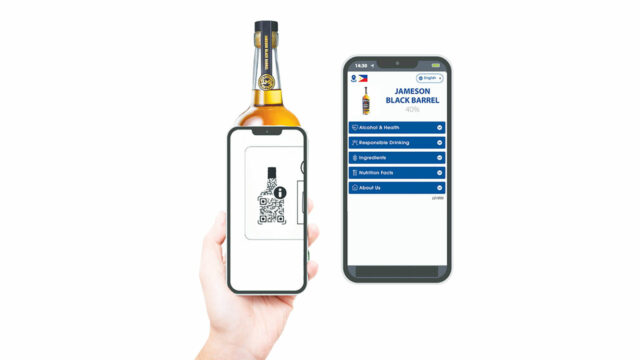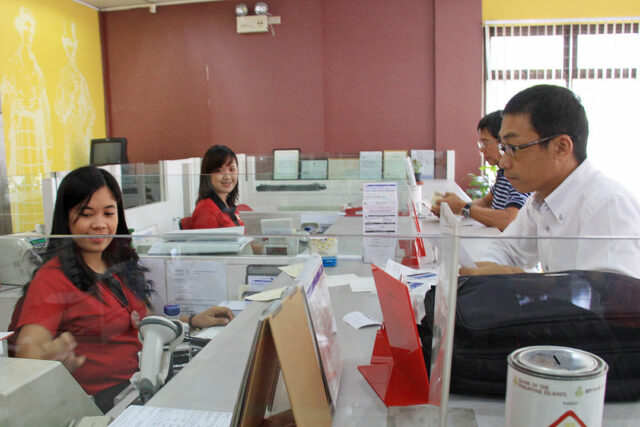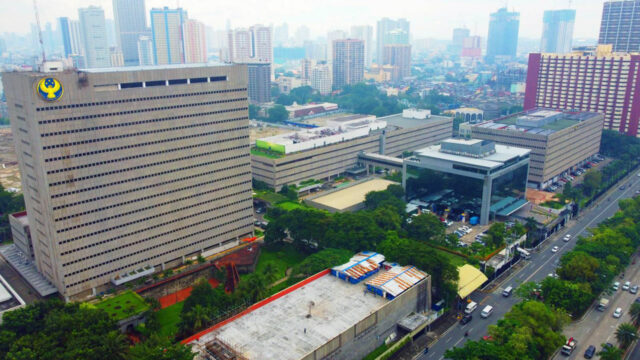How Pernod Ricard is promoting responsible drinking in the Philippines
LIQUOR COMPANY Pernod Ricard is doubling down on promoting responsible drinking in the Philippines with the launch of its digital labeling, which also serves to support the company’s growth in the country.
“The Philippines is one of our fastest growing markets,” Hadyu Ikrami, head of legal, public affairs, communications, and sustainability and responsibility at Pernod Ricard Philippines, said in an interview with BusinessWorld.
“We constantly look into ways to strengthen our presence here and improve customer experience… and we want to keep this momentum via investing our brands in the Philippines,” he added.
Pernod Ricard carries over 200 brands, such as Beefeater Gin, Jameson Irish Whiskey, Ballantine’s Scotch Whisky, Chivas Regal, and Absolut Vodka.
“All major supermarkets and convenience stores are carrying our brands; we have nationwide coverage for modern on-trade outlets. We have an office and warehouse in Metro Manila,” he said.
“Locally produced Western-style product categories, like gin, rum, and brandy, are very big in terms of volume in the Philippines with their very low prices. Long-term conversion to aspirational international brands makes the Philippines an attractive market for our category,” he added.
CRÉATEURS DE CONVIVIALITÉ
“Our motto is ‘Createurs de Convivialité,’ which means creators of conviviality, and we believe that true conviviality starts with responsibility,” he said.
“When consumed responsibly, our products can bring people together to celebrate and enjoy the moment. Excessive drinking undermines that spirit and can also lead to serious health and social issues,” he added.
To promote responsible drinking, Pernod Ricard recently launched its new digital label system in the Philippines, which aims to respond to customers’ growing need to know more about the products they consume.
“We want to provide consumers who choose to drink with accurate information about our products to empower them to make informed choices about whether and how much they should drink,” he said.
The spirit maker’s digital labeling program is part of the wider U-label program put in place by the European wine and spirits industry associations.
“The European pilot program was launched in the summer of 2022, focusing on a selection of the group’s international brands,” said Mr. Ikrami.
“After this first phase, digital labels were gradually rolled out across the world with the full brand portfolio between 2023 and 2024. Since the end of 2024, the digital labels have been available across all our markets, including the Philippines,” he added.
He said that the Philippines is actually one of the first markets in the region where Pernod Ricard launched the initiative, along with Singapore.
“We have also noticed a trend that other industry players that are also producing alcoholic beverages are also following our footsteps in launching their own digital labels,” he said.
“So we are happy to be the pioneers of this initiative because we see that there’s a trend going towards more and more digital labels produced by different companies in the industry,” he added.
DIGITAL LABEL
The digital labels, or electronic labels (e-labels), are QR codes printed on the bottles’ back labels that lead to dedicated web pages that offer product information, health guidelines, responsible drinking advice, and more.
“By virtue of this e-label, there is localized guidance to help with moderation with tips on national drinking guidelines,” said Mr. Ikrami.
“If you scan the QR code, you will have all the necessary information about the ingredients of this beverage and also about the national drinking standard from the Philippine Food and Nutrition Research Institute of the Department of Science and Technology,” he added.
He said that the labels are geolocalized, meaning that the information consumers in the Philippines will get from scanning the bottles in the country will be different from that they would find scanning the QR codes elsewhere.
“The information that you get from scanning a bottle here would only be applicable in the Philippines because we are following the guidelines of the local government,” he said.
“If you scan the QR code in other markets, such as in Singapore, it would be slightly different in some aspects,” he added.
He said that the goal is to go a step further than providing nutrition and ingredients and provide easily understandable national drinking guidelines and set industry standards for digital labeling.
“We want to be the market leader for this, and we have been because ever since we launched this digital label in other markets, we saw the trend of other companies also following our footsteps,” he said.
Following the launch, Mr. Ikrami said that Pernod Ricard is looking at ways to improve the digital labels.
“We are committed to working with partners in the industry and with consumers to help evolve this e-label. We don’t want to say that it’s a perfect initiative because obviously there’s always room for improvement, especially by collaborating with other industry players,” he said.
“We look forward to any collaboration with any third party that would like to work with us in developing this initiative. We want to work with industry and consumers to drive uptake and usage of this e-label,” he added. — Justine Irish D. Tabile

















